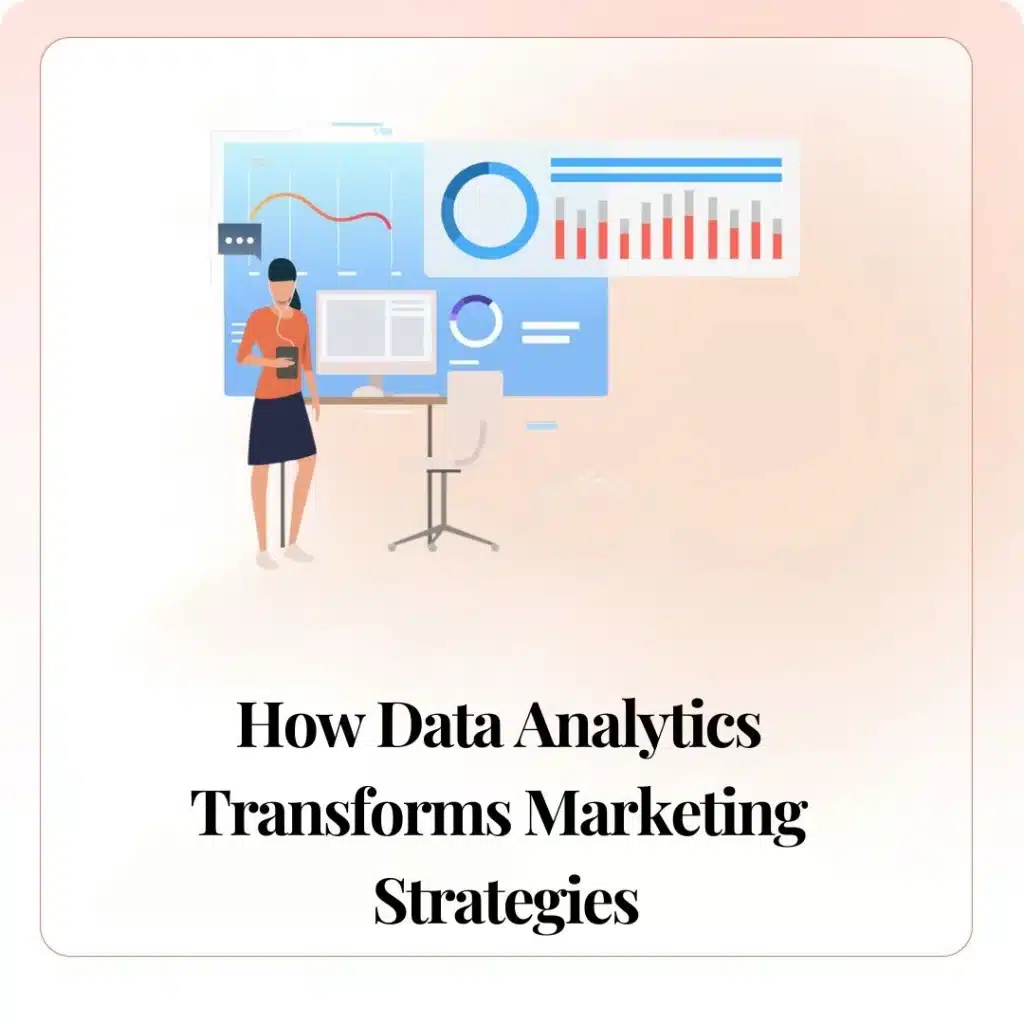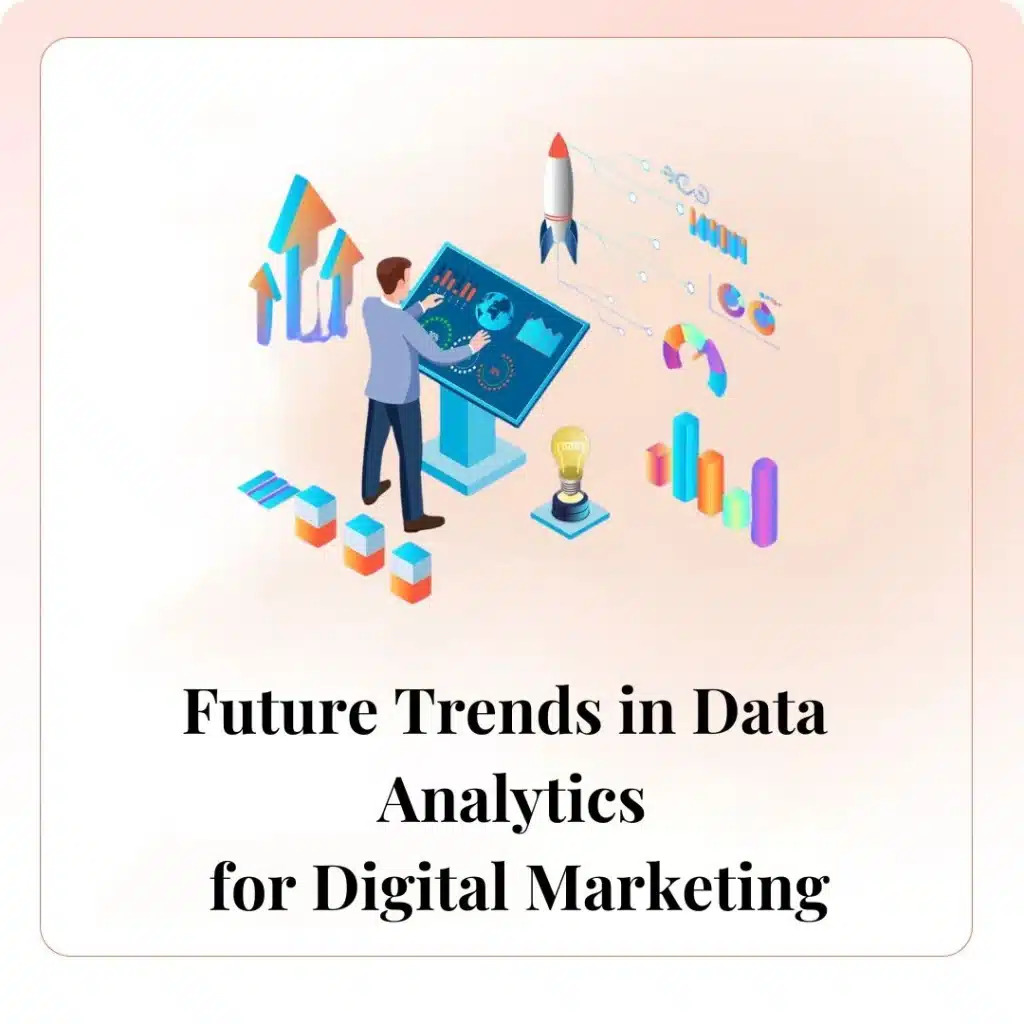In today’s rapidly evolving digital landscape, data analytics has become a cornerstone for crafting effective marketing strategies. For businesses aiming to stay ahead, leveraging data to understand customer behavior and optimize campaigns is essential. This integration of data analytics in digital marketing allows companies, especially the best digital marketing companies in Bangalore, to gain a competitive edge by driving more precise and impactful marketing efforts.
How Data Analytics Transforms Marketing Strategies

Enhanced Customer Targeting
Data analytics helps businesses in Bangalore target customers more precisely by:
- Identifying specific demographic groups.
- Crafting personalized messages for higher engagement.
- Focusing on high-value segments to boost ROI.
Improved ROI Through Performance Analysis
Marketers use data analytics to:
- Monitor and adjust campaigns in real-time.
- Track KPIs for campaign effectiveness.
- Optimize marketing efforts for the best ROI.
Personalization and Customer Experience
Data analytics enables:
- Understanding individual customer preferences.
- Delivering personalized content and offers.
- Adapting strategies based on customer behavior and feedback.
The Benefits of Data Analytics in Digital Marketing
Enhanced Targeting and Segmentation Data analytics enables precise audience segmentation by demographics and behavior, allowing personalized and effective campaigns.
Improved ROI Marketers can maximize ROI by analyzing data to identify and invest in the most effective marketing channels.
Data-Driven Decision Making Real-time data insights guide marketers in optimizing campaign performance and making informed adjustments.
Personalization Data analytics supports creating personalized content and offers, enhancing customer engagement and loyalty.
Optimized Content Strategy Insights from data help marketers craft engaging content that aligns with audience preferences and drives conversions.

Real-World Examples of Data Analytics in Digital Marketing

Case Study 1: E-commerce Business An e-commerce site used data analytics to track customer behavior and discovered a high cart abandonment rate at checkout. They launched a retargeting campaign with personalized emails and special offers, increasing completed purchases by 20% and boosting revenue significantly.
Case Study 2: B2B Marketing A B2B company analyzed data to optimize lead generation, focusing on the most effective sources and channels. This targeted approach led to a 30% increase in qualified leads and a higher conversion rate.
Case Study 3: Social Media Campaign A brand used data analytics to improve their social media strategy by identifying engaging content types. Adjustments based on these insights led to a 50% increase in engagement and a stronger online presence.
Future Trends in Data Analytics for Digital Marketing
The field of data analytics in digital marketing is continually evolving, with new trends and technologies emerging that promise to further enhance its capabilities. Staying ahead of these trends is crucial for businesses looking to maintain their competitive edge.

Some emerging trends include:
- Artificial Intelligence and Machine Learning: These technologies are increasingly being integrated into data analytics tools, providing deeper insights and automating complex analytical tasks.
- Predictive Analytics: Predictive analytics leverages historical data to forecast future trends, helping marketers anticipate customer behavior and adjust their strategies accordingly.
- Enhanced Data Privacy Measures: As data privacy concerns grow, businesses will need to adopt more robust measures to protect customer data while still leveraging it for marketing insights.
Key Data Analytics Tools for Digital Marketing

Several tools can help marketers harness the power of data analytics. Some of the most popular ones include:
Google Analytics
- This tool provides comprehensive insights into website traffic, user behavior, and campaign performance. It is essential for tracking the effectiveness of digital marketing efforts.
HubSpot
- HubSpot offers a range of analytics tools for inbound marketing, including lead generation, email marketing, and social media analytics.
Tableau
- Tableau is a powerful data visualization tool that helps marketers analyze and interpret complex data sets.
4. Hootsuite
- This social media management tool includes analytics features that help marketers measure the performance of their social media campaigns.
5. Mixpanel
- Mixpanel focuses on tracking user interactions with web and mobile applications, providing valuable insights into user behavior.
Conclusion
Data analytics plays a crucial role in digital marketing by providing valuable insights that drive informed decision-making. By leveraging data, businesses can enhance their targeting, optimize their marketing strategies, and achieve higher ROI. As the digital landscape continues to evolve, the importance of data analytics will only grow. For more insights on effective digital marketing strategies, visit the blogs of Osumare Marketing Solutions, Bangalore, one of the top digital marketing companies in Bangalore.
To learn more about how data analytics can transform your digital marketing efforts, explore other informative articles on the Osumare Marketing Solutions, Bangalore blog. Stay ahead of the competition with data-driven strategies and make the most of your marketing investments.

